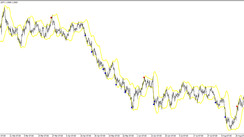The Bond Market is a global credit market where individuals and governments can lend and borrow money. There they can create debts as its principal activity, or buy and sell debts as its secondary market.
These debts are usually presented as bonds, and they are used to give long-term funding to different financial projects. Traders around the world pay attention to this market to evaluate future changes in the world's economy.
US Treasury Bonds – The largest bond market in the world
A treasury bond is one of the most common ways that the US government has to acquire more funds that can be used for different things. This loan is purchased by domestic or foreign investors but also by other foreign governments, increasing the debt of the country.
Currently, the oil-exporting countries, as well as China, and Japan are the most notorious owners of U.S. debt. High debt means that the government has more money to spend, which can help the economy but is a burden for the future.
If the demand for bonds increases, their prices will rise but this lowers the interest rates for treasury bonds, making other bonds more attractive for the buyers. On the other hand, if treasury bond rates increase, it means that the other bonds need to match and increase rates so they can become more attractive.
Mortgage interest rates and bonds
Mortgages are one of the most common financial instruments used in credit markets, but also one with more risks. These loans are of long-term duration, between fifteen and thirty years. If the people that asked the loan can’t pay the interest rates of the bank, they could lose their house.
Investors of the bond market also pay attention to the mortgages that are sold or bought through the secondary market. The interest rates between bonds and mortgages are related; if the bond interest rates go down, the mortgage interest rate will go down too.
Such a situation, for example, gives an excellent opportunity for those who wish to buy expensive houses because they will need to pay less.
Using bonds to predict market movements
The bond market presents itself as an excellent tool for investors and traders from all types. The bond market is the baseline for interest rates on different financial instruments, and how available credit is at a given moment.
Whenever the prices of bonds rise, you can rest assured that the interest rates will decrease, and vice-versa. Interest rates impact anyone who has borrowed money. Rising interest rates make it more difficult to repay the borrowed money - increasing financial stress.
Conversely, falling interest rates are often viewed as good news for the economy since it means debt repayment will be easier, and many people will be encouraged to take on new loans.
The experienced investors will pay attention, especially to the numbers of long-term interest rates. If you follow the bond market, you will increase your chances of being profitable with your investments and trades in other markets too.
Is a bond market crash possible?
Yes, the bond market can crash. There are even more possibilities of this happening that having a stock market crash.
It is because the bond market still works with brokers making calls and offering bonds, and investors having to consult with different agents before making a decision.
Between the time it takes in calls and confirmation, the demand and supply can change. The system hasn’t evolved, which makes it very volatile.
It doesn’t mean that crashes on the bond market are frequent. Looking back through the last forty years, there have been only four years with low numbers on the bond market. In three of those years, the stock market did very well.





